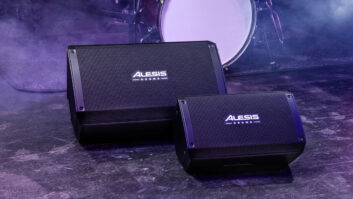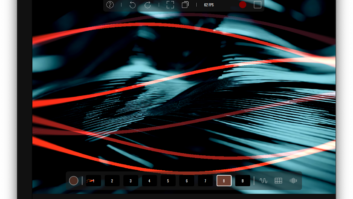NEW YORK — Things are picking up —
or not — in the realm of musical instruments
and accessories, according to
whom you speak to.
The category has inched its way to the
forefront of the consumer electronics
consciousness, driven in part by Best
Buy’s entry into the market. And as with
the rest of the categories under the great
CE umbrella, it has faced the challenges
and downturns of the Great Recession.
As Best Buy has expanded into musical
instruments, many traditional instrument
retailers have continued their natural
expansion into such CE categories
as DJ equipment and PC home-recording
technology.
TWICE reached out to some independent
dealers, as well as to Best Buy,
to see how they had been affected by
the downturns and as to whether they
thought this “early recovery” was reaching
their locations. Not surprisingly, the
reactions were mixed.
Keith Billik, showroom manager of
Elderly Instruments, based in Lansing,
Mich., noted it felt as if the downturn had
been “going on forever.”
“Being in Michigan,” Billik said, “We
were actually hurting a few years before the rest of the country was.”
Although he said it was tough to say as to whether
the store is yet feeling the effects of any recovery, Billik
did say they have begun to hire a few part-time workers
back to the stores after having had to do layoffs and
reduce hours.
Shane Koss, store manager of an Alto Music in New
York City, attributed its pro musician customer base
to its resistance to the recession. “Compared to other
companies, we fared very well, and we’re lucky with
that,” Koss said. “It’s very specialized here. We just cater
to high-end working professionals. They always have
to work — it’s not discretionary spending for them.”
Koss said that approximately 10 or 20 percent of its
customer base are semi-pro or hobbyists, and that
there had been a decline in that area.
Best Buy’s customer base ranges from amateur to
pro, according to spokesman Justin Barber, and this
mix could be one of the sources of its success.
Barber called Best Buy’s musical instrument departments
“a non-intimidating environment.” And while the
recession had proved to be a hindrance for the company,
it still added around 20 musical instruments departments
to its stores.
“It did certainly slow down, but Best Buy as a whole
opened less stores last year. We’re happy with what
we’ve seen so far,” Barber said. He called the new department
openings “a learning process.”
Not surprisingly, most of the retailers we spoke with
implemented strategies to keep their businesses afl oat
during the turbulent times.
Billik said Elderly had “been doing a lot more discounted
sales. [We are] a lot more willing to negotiate
to on prices, whereas before we had a policy not to do
that. [We are] much more willing to do price matching
and make a deal — those kind of competitive things.”
Leslie Chew, operations director for Los Angelesbased
Westwood Music, said that diversity helped
them carry through, including “moving into some other
markets, like professional audio, custom installations,
increasing our teaching and education schedule, and
not relying solely on the sale of musical instruments.”
Chew said it was musical instruments that got hit the
hardest, although Westwood, which has been in Southern
California since 1946, has seen the guitars coming
in on consignment increase over the last year.
While Best Buy does not currently sell or buy back
used instruments, often a fixture in a music retailers,
Barber said that this doesn’t meant it won’t in the future.
When asked what products are proving to be growth
categories, responses were again mixed, partially depending
on the product mixes of the retailers.
Barber said that while it depended on where the store
was located, “guitars are obviously a pretty good seller.
One thing we’ve really seen is DJ equipment has
become huge. We’ve also expanded our PA assortment.”
Elderly’s Billik noted that ukuleles had been rising,
along with home recording. “Computer-based home recording
has been really big. It’s so inexpensive to do it
— almost any musician of any genre will be able to participate
in that … No matter what style music you play,
you’d be interested in it. It’s fairly cheap now. For two
hours of studio time you could setup yourself to do it
whenever you want, wherever you want.”
Koss of Alto echoed the popularity of home recording.
“More and more manufactures … are focusing on
that market [home recording] specifically. Even at the
expense of their other products. They just see that as
an untapped market to expand.”
Westwood’s Chew declined to name a specific category
that had seen growth, explaining, “We’ve been
relatively flatlined.”













